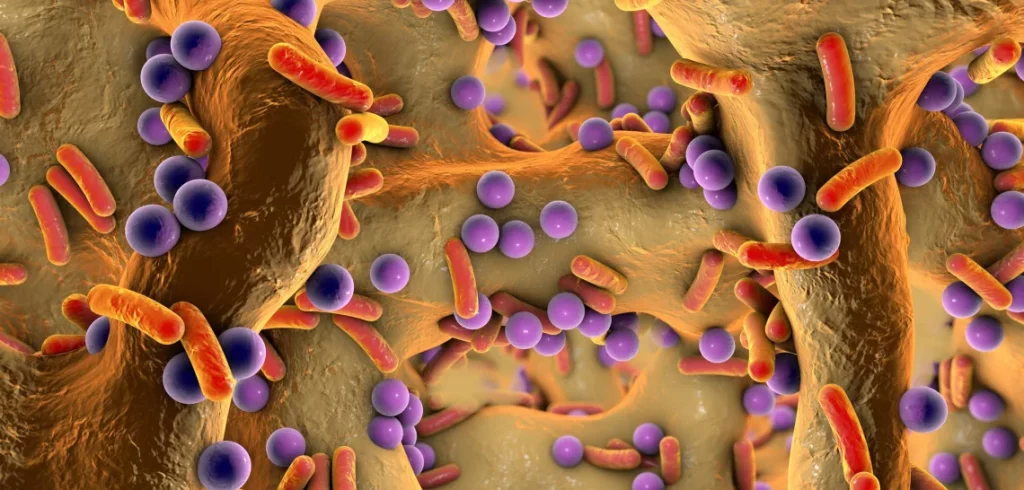
Does Gut Bacteria Play a Role in Rheumatoid Arthritis?
by Paz Garcia
A group of gut bacteria is linked with high genetic risk of rheumatoid arthritis, according to new TwinsUK research published today.
These findings will help researchers understand how rheumatoid arthritis may develop in the very early stages.
Rheumatoid arthritis (RA) is a long-term condition that causes swelling and stiffness in the joints and can lead to disability. It affects around 400,000 people in the UK.
We know from previous research that certain genes can make some people are more likely to develop RA than others, and that a combination of genetic and environmental factors lead to RA. In this study, the team investigated whether high-risk genes were linked with certain types of gut bacteria.
The researchers analysed genetic and microbiome data of 1,650 TwinsUK participants with no history of RA, so that they could see if they could spot any early warning signs before the onset of symptoms. The team calculated the twins’ genetic risk for RA and then looked at the gut bacteria identified from stool samples.
The team found that bacteria from a group named Prevotella were associated with high genetic risk of RA. In addition, the researchers found bacteria from the same group were linked with early stages of RA when they analysed data from participants in another cohort study.
First author Philippa Wells explained:
“Our findings are in agreement with the gut microbiome having a role in the development of RA. Speculatively, in the future this could be a possible target for treating the condition. This is something future studies will need to explore.”
The work was funded by charity Versus Arthritis. Head of Research Engagement at Versus Arthritis Natalie Carter said:
“8 out of 10 people who experience chronic pain every day have arthritis. Despite treatments for rheumatoid arthritis improving over the years, there are still too many people who live with persistent pain because they do not respond to available therapies.
“By understanding how specific bacteria in the gut affect the development of rheumatoid arthritis we not only open the door to more targeted, effective treatments, but we can begin to tackle the disease sooner. Implementing treatment that works as early as possible will keep joint damage to a minimum, help people manage their condition and allow them to lead full and active lives.”
Wells et al. Associations between gut microbiota and genetic risk for rheumatoid arthritis in the absence of disease: a cross-sectional study. Lancet Rheumatology, 2020.
